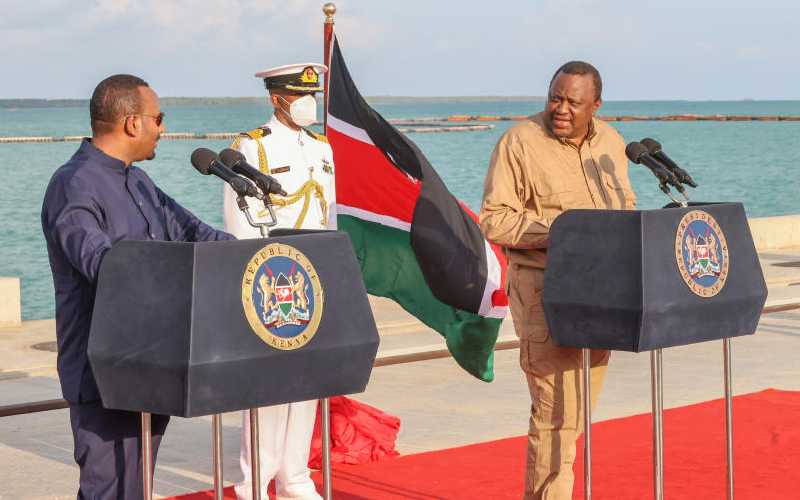×
The Standard e-Paper
Join Thousands Daily

President Uhuru Kenyatta and Ethiopia's Prime Minister Abiy Ahmed address the media shortly after inspecting ongoing developments at the new 32-berth Lamu Port in Lamu County in December 2020. [PSCU]
Signs of unpleasant geopolitical rumblings in the Igad cluster are visible within and outside each of the countries. Eritrea, on the Red Sea, punches above its geographical and demographical size and often appears like the friction instigator in the Horn of Africa.